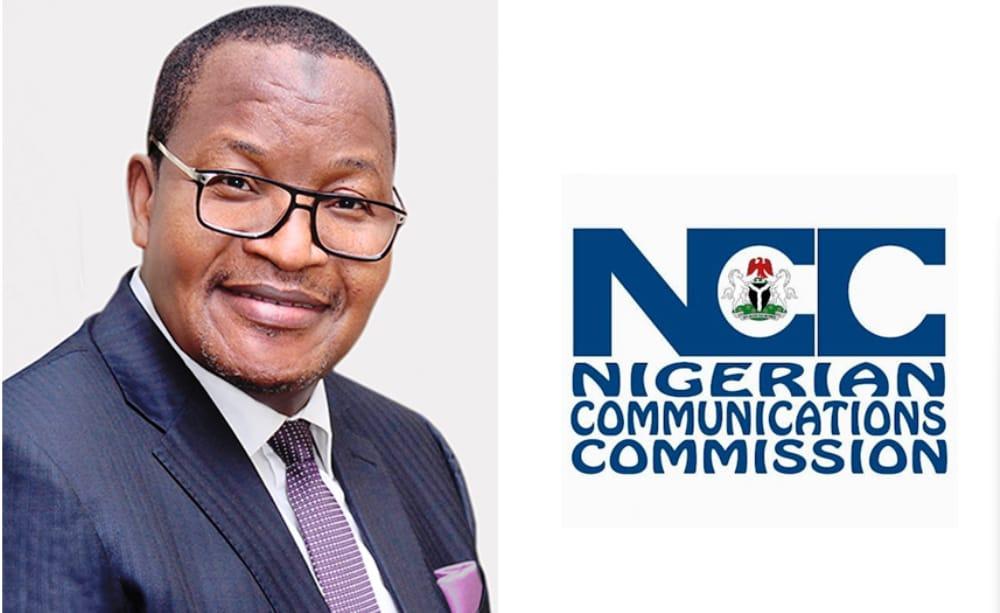The Nigerian Communications Commission (NCC) has said that it remains the agency of the Federal Government that is most stakeholder-friendly since inception to date.
In his opening remarks, at a recent Seminar organized by the Nigeria Information Technology Reporters Association (NITRA) in Lagos, the Executive Vice Chairman of NCC, Prof. Umar Danbatta traced the activities of the agency since inception, saying “It is on record that amongst all the government agencies, only the NCC has started and maintained Telecoms Consumer Parliament (TCP) to drive greater understanding of government policies and activities from time to time”.
Danbatta represented by the Director, Corporate Affairs, Mr. Tony Ojobo noted that “Considering the gains of the TCP over the years, we will continue to maintain the tempo especially now the sector has become the highest driver of foreign direct investment.
Earlier in his remarks, the chairman of the Seminar and President of Association of Licensed telecoms Operators of Nigeria (ALTON), Engineer Gbenga Adebayo said “Time has come to clearly differentiate what is being regulated as far as telecoms industry is concerned in Nigeria,” asking wheatear it technology that is being regulated or content or service.
Adebayo noted that “We do not have enough base station across the country so there is the need to continue to build more, we do not have enough hinterland fiber across the country there is the need to build more and overregulation can limit this growth; this explains in path while the cost of bandwidth between Lagos and London (over 600 miles away) is far cheaper than cost of bandwidth between Lagos and Ilorin kwara State which is less than 400 kilometers away.
“Multiple and/or unlawful levies, taxes & charges are increasingly imposed upon telecom operations by myriad MDAs of Government at all levels in a way to subtly regulate the industry
“The frequent enforcement actions of these MDAs to compel payment result in extensive disruption of telecoms operations, affecting customer experience.
Operators face major challenges in securing site and right of way approvals from state governments: Continuing community issues hinder development & maintenance of sites across the Country amongst other issues.
He observed further that increasing incidence of recurrent fibre cuts on network affecting signaling & transmission links across the country. Indiscriminate vandalisation and sabotage of sites by some MDAs who often claim to regulate, collect levies and permits from operators but provide no further protection for such infrastructure.
These interventions considerably increase the lead time to roll out, inflate costs of deploying infrastructure and depreciate network quality. The interference of the MDAs has created a wide infrastructural gap that leads to the poor quality of services being experience by subscribers.
ALTON called on federal government to accord telecom infrastructure the status of a critical national socio-economic infrastructure and provide the requisite protection to the industry by ring fencing telecommunications from the influence of various MDAs.
“We therefore need to remove all bottlenecks in the way of securing right of way and permits amongst others in other to provide better access, achieve the desired national broadband objectives of 30% penetration by 2018 and provide affordable services accord the country.
“While under regulation will lead the chaos and high security risks, over regulation will limit the use and application of dynamics of modern technology and also limit access to global trade and knowledge. We must continue to debate these issues in order to guarantee the sustainability of our technology development
In his presentation which bordered on the theme of the seminar: The Impact of Over-Regulation of The Telecommunications Industry on Service Delivery, the General Manager of Lagos State Infrastructure Maintenance & Regulatory ( LASIMRA), Mr. Babjide Odekunle said apart from the fact that the federal constitution gave states the right to regulate the location and building of urban infrastructure to limit cases of abuses and dangers, Lagos State has stopped the experience of collapsed masts or wrongful excavations on major roads.
This agency has been promoting ease of doing business in Lagos State as issues of over regulation or multiplicity of taxes, levies and charges are completely eliminated. None of our 57 LGAs &LCDAs is involved in cases of illegal collections of LASIMRA fees and levies.
Our Agency facilitates registration, enumeration, regulation, issuance of permits in the areas of broadband deployments, erection and installation of masts and towers, security and post –project management activities within the geographical boundaries of Lagos State. We coordinate inter-agency cooperation with relevant ministries, departments & agencies (MDAs) in the state on behalf of operators in the state.
Under my leadership, LASIMRA has engaged with NCC in order to ensure that support is given to operations in the areas of infrastructure deployment and service delivery to all stakeholders. It is on record that in 12 months that I have led the agency, no Base Transceiver Station (BTS) has been shut despite huge debts incurred by some operators in the state.
In his presentation on the theme, the President of Association of Telecoms Companies of Nigeria (ATCON), Mr. Olusola Teniola said “The word “Regulation” was not known in the telecommunications sector until the sector was fully liberalized by the Nigerian Government over ten years ago. The need for regulating the telecommunications sector was initially not cogent as it was only NITEL that was charged with the sole responsibility for providing telecommunications services for Nigerians.
Teniola, represented by the 1st Vice President of ATCON, Engineer Tony Nwosu noted that the incessant shut down of telecoms facilities by multiple regulatory bodies have an adverse effect on the quality of services offered by operators in the industry. The outages occasioned by these shut downs negatively impact quality of service indices such as reduced call completion rates, increased call drop rates, increased voice quality impairment, and transmission quality impairment. The overall implication of these is heightened consumer dissatisfaction with the quality of services provided by operators.
According to him, “Other implications of over-regulation in the telecoms industry include Broadband roll-out delay, inability of players to roll out services and even extinction of some companies.
Earlier in his welcome address, the President of NITRA said the association will continue to provide platforms like the seminars for industry operators and policy makers to regularly interface so as to churn out workable policies in the sector.
In his Vote of Thanks at the end of the seminar, the Vice President of NITRA and Editor of Nigeria Business Hilights, Prince Stan Okenwa thanked participants for their constructive presentations.










